Press Reviews
December 2021
International Media Digest
SLOVENIAN PRESIDENCY ENDS WITHOUT BREAKTHROUGH ON ENLARGEMENT, FRANCE IS NEXT
No significant progress towards EU enlargement to the Western Balkans was achieved during the six months of the Slovenian Presidency of the Council of the European Union, although Ljubljana said this would be a “priority” for its semester.
At the beginning of its semester of the presidency, Slovenia said it would push for the restarting the stalled enlargement process of the EU to the Western Balkans. One of the main events of the presidency was the EU-Western Balkan Summit, held in October. The summit had the primary goal to reaffirm the EU’s commitment to enlargement and overcome the Bulgarian veto against North Macedonia, that is currently stopping the opening of accession negotiations with both countries for two years.
No breakthrough was achieved during the past six months despite Slovenian efforts. Although a new government in Sofia pledged to lift the veto against North Macedonia, introduced due to issues related to language, identity and diverse interpretation of some historical facts, Slovenia and other EU member countries did not manage to convince Bulgaria to unblock the start of the talks by December. Albania’s progress is de facto tied to North Macedonia. Also, Serbia and Montenegro, both candidate countries, and Kosovo and Bosnia and Herzegovina, potential candidates, did not make significant progress in the past six months.
The EU General Affairs Council outlined the state of the art of the EU enlargement process in December. “The Council looks forward to the holding of the first intergovernmental conference” with Albania and North Macedonia “as soon as possible,” the Council of European Union conclusions on Enlargement and Stabilisation and Association Process read. However, EU Foreign Affairs ministers disagreed on a precise date for opening the negotiations.
No significant progress was also observed concerning the EU entry process of Serbia and Montenegro. “The Council welcomes the overall progress made in the accession negotiations” by Montenegro “so far, with all 33 screened chapters opened and three provisionally closed,” the conclusions said about Montenegro. However, the Council noted that more progress is needed in the field of the “rule of law” to make new progress under “chapters 23 and 24.” Serbia, which opened 22 out of 35 negotiations chapters, has managed to open only the so-called “Cluster 4” on green agenda, environment and sustainability. It was stressed that Belgrade should work more on “the rule of law and fundamental rights chapters, as well as on the normalization of Serbia’s relations with Kosovo.”
The Council regretted the “prolonged political crisis” in Bosnia, “which has held back further progress on reforms in 2021, and condemns the blockage of the State institutions.” With regards to Kosovo, the Council urged the authorities in Pristina to “accelerate the reform processes.”
“I personally believe that the enlargement of the EU is in the common security interest of the entire European continent. In the last decade and a half, history has taught us that, if the EU is not expanding, someone else is, but not in the name of freedom and security,” said Slovenian Prime Minister Janez Jansa at a press conference focused on the achievements of the Slovenian presidency. Jansa said that the EU-Balkans summit in any case gave “an important signal,” reinforcing the perspective of EU membership for the Western Balkans.
After Slovenia, the presidency of the Council from January 2022 will be held by France, the country with the most widespread disapproval of countries in the Western Balkans joining the European Union. France announced it would organize another conference on the Balkans during its semester. “We must (…) clarify their European prospects, reinvest in this region and its unity, and have a true shared ambition for the decades ahead,” French President Emmanuel Macron said during the presentation of the French Presidency. During his speech, however, Macron – in the past one of the EU leaders more adverse on further expanding the Union before reforming it – did not mention the word enlargement once.
LITHIUM PROJECT ON HOLD IN SERBIA AFTER MASS PROTESTS
After three consecutive weekends of protests and roadblocks organized by environmentalist and opposition groups, authorities in Serbia were forced to put on hold a lithium mine project planned in the area around the city of Loznica, in the Western part of the country.
The so-called “Jadar Project”, from the name of the valley of the Jadar river, near Loznica, is one of the flag projects of the mining giant Rio Tinto. The Anglo Australian company said it will invest almost two billion euros in “one of the largest greenfield lithium projects in the world.” Lithium is a mineral increasingly used to produce batteries for electric vehicles and modern electronic appliances, solar panels and wind turbines. According to Rio Tinto, the planned underground mine in Serbia, the largest planned in Europe, could produce annually around 58.000 tonnes of lithium carbonate, 160.000 tonnes of boric acid and 255.000 tonnes of sodium sulphate, making Serbia one of the top producers of lithium globally.
Activists, critics of the government and residents of the Loznica region protested for weeks against the project, claiming it would be very harmful to the environment and health in a country already marred by pollution and ecological problems. On the other side, the company said it would respect all standards to protect the environment. “We remain committed to optimizing the economic and social benefits while minimizing any negative impacts to the community and the environment,” said Marnie Finlayson, Managing Director for Borates and Lithium.
However, every Saturday, thousands of demonstrators, unconvinced by Rio Tinto’s promises and those of the authorities, took the streets in Belgrade and several other Serbian. Protesters blocked roads, highways and one of the main bridges in Belgrade in one of the most serious challenges to the rule of the Serbian President, Aleksandar Vucic, in years. During the first protests, extremists and police attacked demonstrators, arresting many, while the second and third protests were largely peaceful.
Demonstrators achieved their key goals already by mid-December, forcing a drastic U-turn on the government. First, pressured by protests, the government withdrew a contested Expropriation Law, that drastically reduced the timeframe for land expropriation, and amended the Referendum Law, seen by critics as the main tools to ensure realisation of the Jadar Project and similar investments by foreign companies in Serbia. Following that, the municipal council of Loznica, in a decision anticipated by the Serbian President Aleksandar Vucic, cancelled the local spatial development plan that permitted the excavation of lithium at the future mining site, de facto placing on hold the entire project. “Whether there will be a mine depends on people (…) and the study on environmental impact assessment,” said Serbian Prime Minister Ana Brnabic. “We will talk to Rio Tinto in a different way as well as anyone else in future,” Vucic added.
The protests, which have provoked tension in the country, could nevertheless continue. Some organizations, such as “Ekoloski ustanak” (Ecologic revolt), which is planning to participate in the 2022 general elections, are pushing for the complete cancellation of the “Jadar Project”. Lithium exploitation will be one of the main topics of the elections next year in the country. According to the latest survey, the SNS party could win around 57% at the elections, only 12% could go to a united front of the main opposition parties, with a turnout of just 50%.
Further News and Views
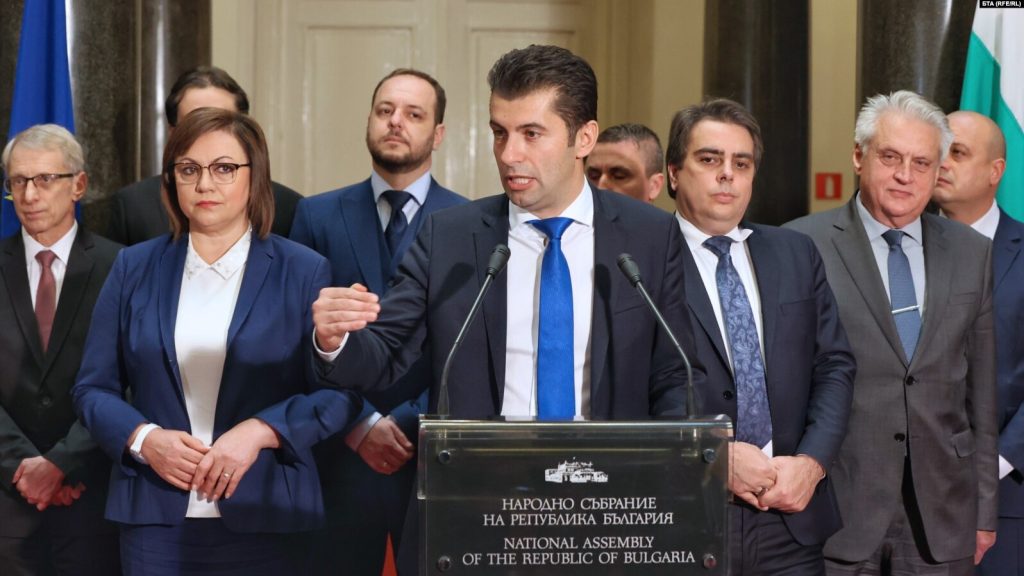
Bulgaria has finally a new government, political crisis over
After months of profound political crisis, the Bulgarian Parliament approved a new government led by Kiril Petkov, of the centrist and pro-European party “We Continue the Change” (PP). The PP won the last elections in October with 25,6% of the votes. Apart from the PP, the new government is supported by the Bulgarian Socialist Party (BSP), the party “There Are Such People” (ITN) and Democratic Bulgaria. The new Bulgarian PM said that he would propose a “speedy” negotiation process with neighbouring North Macedonia to lift the current Bulgarian veto against North Macedonia. Bulgaria blocked the European path of Skopje over several disputes, including the origin of the Macedonian language, and the protection of the Bulgarian minority in the neighbouring country.
BNE Intellinews, The Associated Press, Euractiv
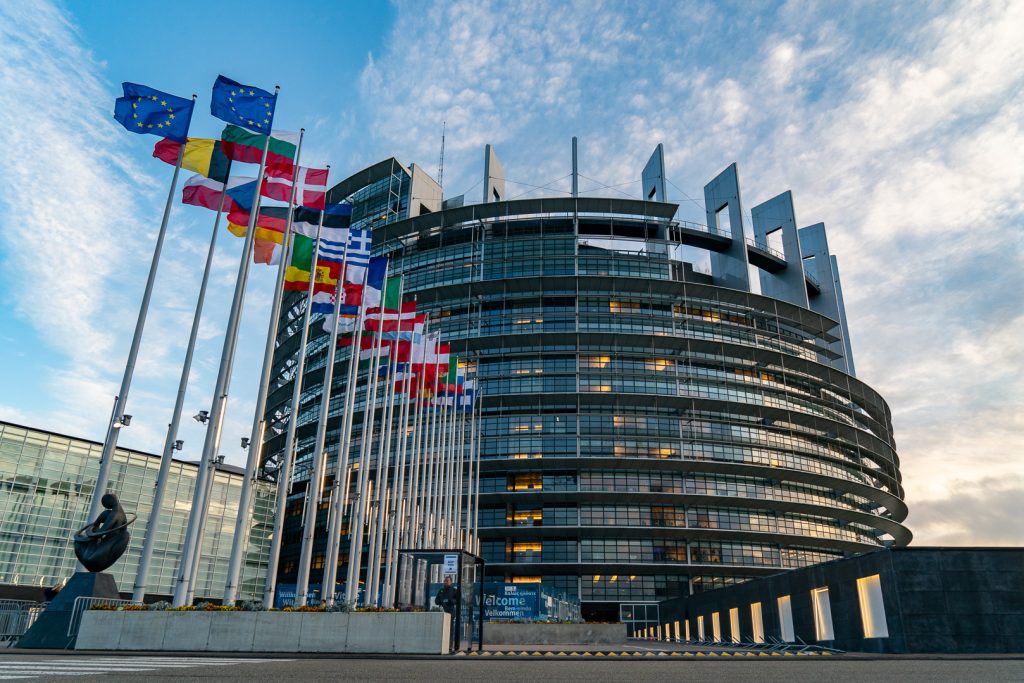
European Parliament criticizes Slovenia and Serbia on the rule of law
The European Parliament has approved two resolutions expressing “deep concern” about the current state of European values in Slovenia, EU member since 2004, and in Serbia, still a candidate country. European MPs warned of an increasing “climate of hostility, distrust and deep polarisation” in Slovenia, underlining media freedom concerns and issues with Slovenian prosecutors nominated to the newly founded European Public Prosecutor’s Office (EPPO). The European Parliament expressed as well concern over “legal privileges” granted to Chinese industrialists and “increasing violence by extremists” against peaceful demonstrators in Serbia.
European Parliament (resolution on Slovenia), European Parliament (resolution on Serbia)
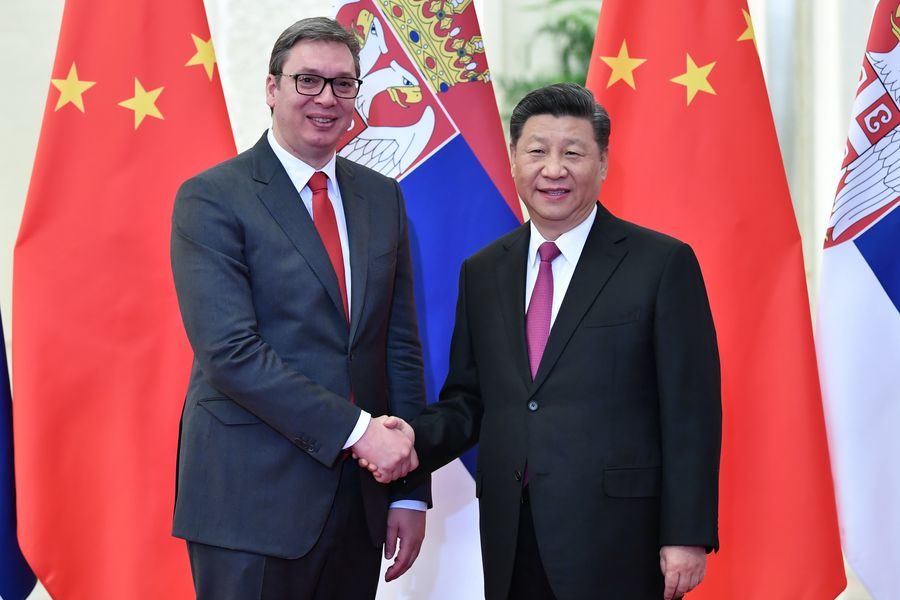
Mapping China’s expansion in the Balkans
Eight years after the launch of the so-called “Belt and Road Initiative,” an economic initiative of Beijing meant as well to expand Chinese influence worldwide, China has already implemented more than 130 projects in the Balkans. According to research by BIRN, “the region hosts 135 projects,” almost half in Serbia, worth “at least 32 billion euros, that are in one way, or another linked to China.” China is focusing primarily on projects related to metallurgy, mining, energy, and transport. Experts and observers warned about the risks connected with heavy indebtment of the countries in the region to China, as in the case of Montenegro, and about issues related to corruption and the negative environmental impact of Chinese-led investments.
China in the Balkans, Balkan Insight
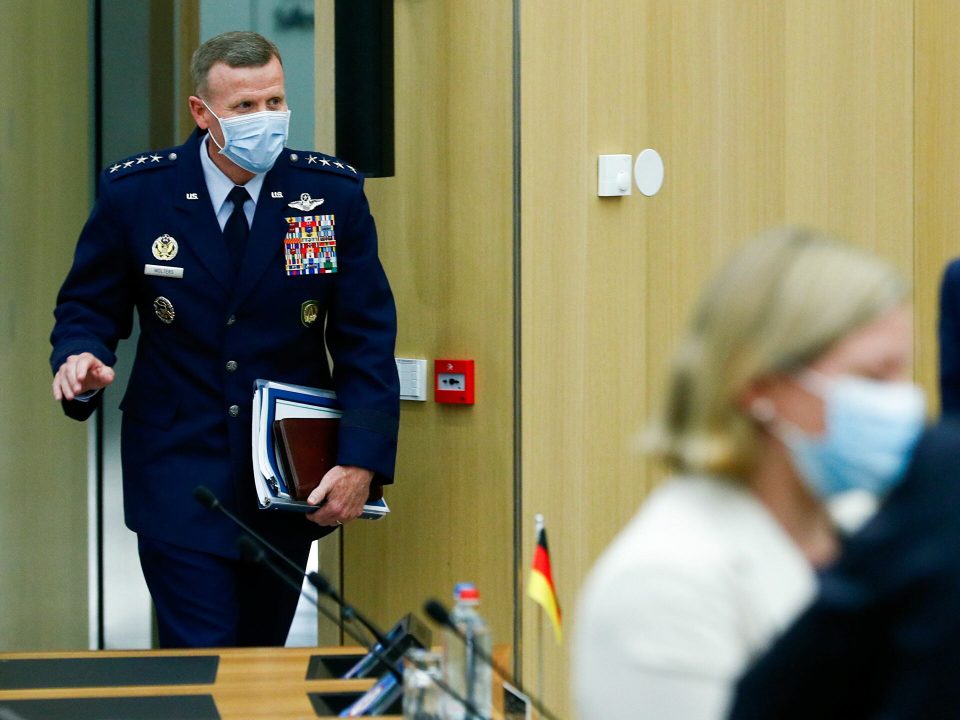
NATO plans to deploy more troops to Romania and Bulgaria
NATO could reinforce its presence in Romania and Bulgaria by deploying more troops in the two countries, an answer to the Russian military build-up near the Ukrainian border, NATO’s Supreme Allied Commander Europe Gen. Tod Wolters has suggested, the German weekly Der Spiegel reported. Der Spiegel wrote that it has information according to which Wolters “called for a reinforcement of troops on the eastern border” of NATO during a confidential videoconference. The deployment of troops in the two Balkan countries, both part of NATO since 2004, could be carried out by extending the scope of the current NATO “Enhanced Forward Presence” mission deployed in the Baltic states and eastern Poland. Both Bucharest and Sofia have repeatedly asked for more NATO presence in their territories in the previous months.
Deutsche Welle, Reuters
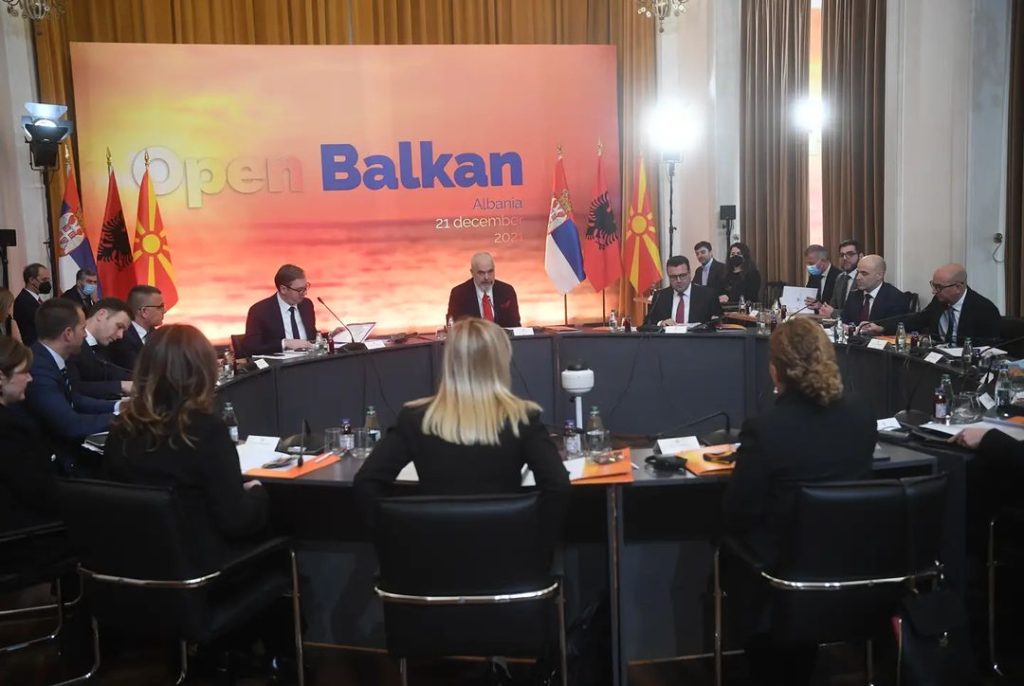
Albania, North Macedonia and Serbia accelerate on common market
Albanian PM Edi Rama, outgoing Macedonian Prime Minister Zoran Zaev – who stepped down on December 22 – and Serbian President Aleksandar Vucic signed several deals at a new “Open Balkan” summit in Tirana in December. The agreements on labour market, electronic identification and non-tariff barriers for businesses accelerate the creation of a sort of Balkan single common market between the three countries, on the model of the EU Schengen area. The Open Balkan initiative, which was launched in 2019, aims at abolishing customs controls between the three Balkan countries by 2023. “Our goal is that the Balkans have no more borders for people, for the movement of goods, capital, and services – four European Union principles,” said the Albanian PM Rama. Protests were held in Tirana against Rama and Serbian President Vucic.
Radio Free Europe, Balkan Insight
Monthly Analysis
BOSNIAN SERB PARLIAMENT VOTES WITHDRAWAL FROM BIH INSTITUTIONS,
BUT TIMEFRAME AND ENACTMENT UNCERTAIN
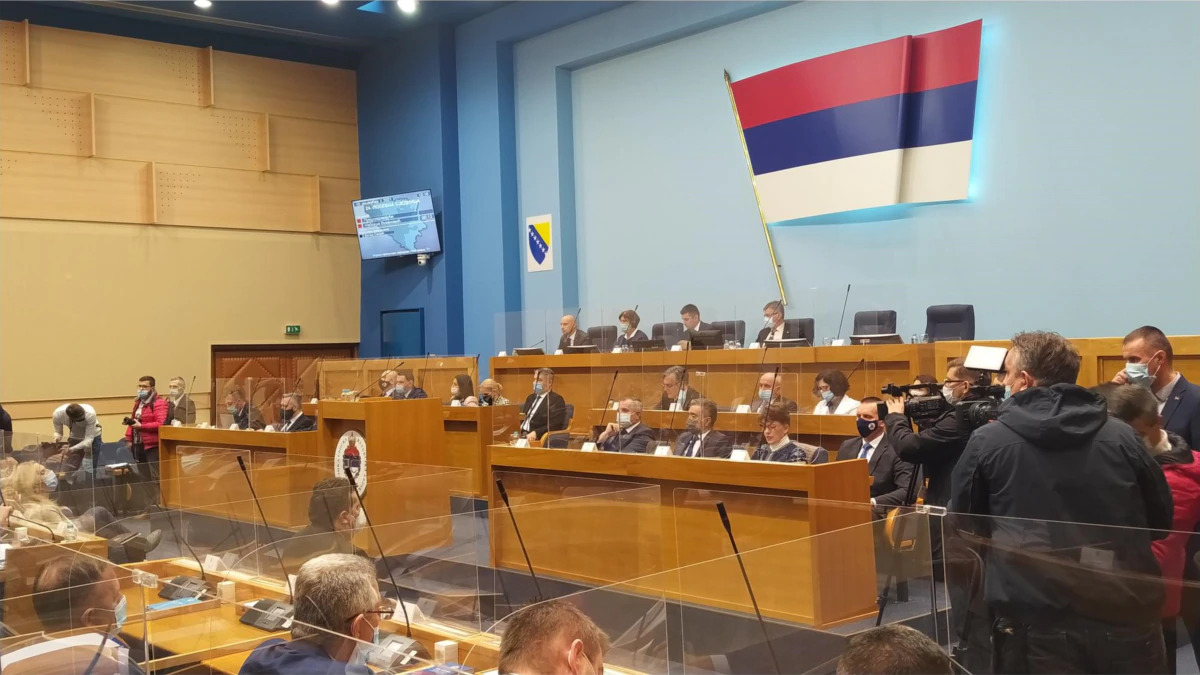
Despite international pressures and the threat of sanctions against the Bosnian Serb political leadership, the Parliament of the Republika Srpska, the Bosnian Serb entity in Bosnia and Herzegovina, voted in favour of leaving key central institutions on December 10, a move strongly supported by Bosnian Serb nationalist leader Milorad Dodik, and seen by Western powers as semi-secessionist. However, there are signs that the crisis could be defused in the following months.
The political turmoil in Bosnia began in the summer, when the outgoing High Representative in Bosnia and Herzegovina (OHR), Valentin Inzko, decided to introduce a law that made punishable the acts of publicly denying or justifying the genocide in Srebrenica and other war crimes committed in Bosnia. Dodik accused the OHR of marking the entire Serbian people as “genocidal.” As retaliation, the leadership of Republika Srpska (RS) firstly announced a boycott of the central institutions by Bosnian Serbs representatives. Immediately after, Dodik announced that the RS would introduce new regional laws for the withdrawal of the Bosnian Serbs representatives from the joint Indirect Tax Administration (ITA), the central High Judicial and Prosecutorial Council (HJCP) and even from the Armed Forces of Bosnia and Herzegovina, a multi-ethnic institution created in 2005.
At the beginning of December, the threats became even more concrete. In an extraordinary session of the Bosnian Serb Assembly, lawmakers approved a set of non-binding provisions that could pave the way for the regional government to opt-out from key central institutions and organizations, by approving new laws for this purpose. This could happen within six months.
With the opposition warning the move could lead Bosnia into a new conflict, MPs from the ruling coalition led by Dodik’s SNSD party voted to strip Bosnia and Herzegovina from powers in the field of defence, security, taxation and justice. Their decision could directly undermine the pillars of the central state built around the Constitution founded on the Dayton Peace Agreement.
Bosnian Serb authorities will have six months to draft new laws to implement the decisions and organize the withdrawal from the institution, including the Bosnian army. After the vote, Dodik, who has been threatening with secession for years, stated that the Bosnian Serb Parliament marked a “moment of conquest for freedom of Republika Srpska.”
The initiative is “a direct threat to peace”, and it would “lead Republika Srpska into the spiral of war,” said Mirko Sarovic, one of the leaders of opposition, which boycotted the vote. The opposition claimed that the vote was “hypocritical” and a “farce”, accusing Dodik of planning to provoke tensions to maintain his grasp to power because of the general election to be held in October 2022. “What does the RS army represent? Do we have money for tanks, aeroplanes?”, an opposition MP, Branislav Borenovic, asked Dodik. The words of Borenovic were a probable reference to the RS budget, laid out in December, which does not include any financial provision for supporting a Bosnian Serb army.
In the meantime, in Sarajevo, other Bosnian political leaders, including the Bosniak member and the Croatian member of the tripartite presidency, Sefik Dzaferovic and Zeljko Komsic, urged the international community to react against Dodik. The Peace Implementation Council (PIC), an institution monitoring the respect of the Dayton agreement, warned that a “unilateral withdrawal” is not possible. The PIC threatened “consequences” for any party violating the agreement, but Russia – part of the group – did not sign the statement. The so-called ‘Quint’, the United States, the United Kingdom, France, Germany and Italy condemned the Bosnian Serb move as “a further escalatory step”.
However, the seriousness of Dodik’s threats is still to be demonstrated. Indeed, Dodik failed to convince the opposition to support his plans, although in the past he almost always managed to rally all Serb MPs to vote unanimously. Moreover, it is still unclear if Republika Srpska will continue pushing towards de-facto secession in the following months. Actually, according to an internal EU report published by the local media, the EU Commissioner for Enlargement, the Hungarian Oliver Varhelyi, might have received assurances from the RS leadership that a “moratorium to pass legislation on the unilateral withdrawal from State Institutions would be announced for 6 months.” Besides, the document suggests the existence of a deal to defuse the crisis and a way out of the current crisis. “A fragile political package agreement seemed to have been reached, which would not only halt the implementation of policies for the unilateral withdrawal of the RS from State Institutions, but also de-block BiH state-decision-making bodies in order to continue work on EU reforms,” the document reads.
According to the leaked text, leaders in Bosnia agreed to overcome the crisis by “solving State Property issues based on common criteria and in close co-operation with the US and the Office of the High Representative;” by “addressing the issue of former High Representative (Valentin) Inzko’s Criminal Code amendments through a law adopted by the BiH Parliamentary Assembly” and by focusing on the “Constitutional and Electoral Law Reform.”
The Insight Angle

MARKO PRELEC
He is a Consulting Senior Analyst for the Balkans,
International Crisis Group.
Prelec taught at the United States Naval Academy and at the Central European University, and he is the founder of the Balkans Policy Research Group think tank.
He also investigated and helped to prosecute war crimes in former Yugoslavia at the International Tribunal in The Hague.
The crisis in Bosnia-Herzegovina continued to unfold in December. How do you assess the current situation in the country? Is Bosnia heading towards a further escalation after the recent moves observed in the RS Parliament?
Bosnia-Herzegovina is in its most serious crisis since at least 1999, with two serious threats – the Republika Srpska move toward separation and the threat of a Croat and Serb boycott of the 2022 elections. In a way, it is like the boy that cried wolf: Bosnia has had so many crises that we have got used to the idea they are not serious and eventually pass, but I think this one has the potential to do real, perhaps irreparable damage. Underneath the two main threats there’s a more basic problem, there is not only no common vision of the country’s future, but worse, there are two opposites, competing and roughly equally powerful visions. One side, centred in Sarajevo, wants to strengthen the state while the other, based in Banja Luka and Mostar, wants to weaken it and instead build up its regions. There is very little trust between leaders and not a lot of interest in compromise. So, we are looking at a situation where the usual recipe of papering over the disputes and going back to business as usual does not seem realistic any more. Even if that happens, and it might, the basic conflict will persist and keep generating new crises until it is resolved somehow.
Do you think there is a concrete risk of a breakup of the country in the next months? And do you think Western powers, the EU in particular, are capable and willing to intervene politically to avoid a more serious crisis in 2022?
The Serb leadership has opted for secession in extreme slow motion. Nothing much should happen in the next few months. The time scale is one to two years, I think. The RS Assembly resolution gives the government six months to draft laws on pulling out of several key institutions including the army, which takes us to June 2022. Then there is some debate in parliament which can take as long as they want and will certainly be done in a fresh storm of international pressure. Once the laws pass, there will likely be a challenge in the RS Council of Peoples, which will go to the entity’s constitutional court – another delay. Once the laws are formally adopted, they will be challenged and almost certainly struck down by the BiH constitutional court. It’s possible the RS leaders are planning on that, with the intent of rejecting the court’s rulings and using that step to mark their further separation from Sarajevo. By that time the elections will be on the agenda, and we will know who will participate. The worst scenario is a complete breakdown in relations between leaders by summer 2022, leading to both Croats and Serbs boycotting the October national election and perhaps trying (at least in RS, which could more realistically do this) to hold their own. The result then could be not only the RS laws coming into effect but also a dispute about who was legitimately in power.
On the other hand, there seems to be very little interest in fighting. I think some of the warnings, mostly coming out of Sarajevo, about war breaking out again may be sincere, but there’s also a current of trying to arouse international interest and sympathy. The fact is there are no signs of serious preparation for armed conflict, and no clear goals, on any side, for the use of force. So, I think we can be glad about at least that. This is still mostly a political rather than a military dispute. But it’s easy to imagine small scale fighting breaking out without leaders necessarily wanting it, and possibly escalating from there. It’s a good thing there is still a UN Chapter 7 mandate in effect.
The international community, by which I mean the states that are engaged in Bosnia and the Balkans, should do all it can to avoid the worst-case scenario and help the country make it through the October elections in one piece. That means deploying a good mix of carrots and sticks to persuade the Serbs to at least slow down their march to the exit until after the election, and to find at least a temporary agreement on election rules that both Bosniaks and Croats can live with. It should also signal a willingness to participate in a search for a long-term solution in the coming years, with the leaders elected in October. It’s true that past efforts at constitutional reform all failed, though some came close. So why try again? Because there may be no viable alternative, it looks like Bosnians either find a way to improve on Dayton or see their country fall apart sooner or later. Putting new talks on the country’s future on the agenda now should also help persuade everyone to slow down and refrain from unilateral acts.
Are you expecting any breakthrough in the Serbia-Kosovo dialogues in the next months? Do you still think Belgrade and Pristina are capable and willing to reach a final agreement?
The probability of a breakthrough in Serbia-Kosovo relations over the next year or two is near zero. It’s so low there is no point pushing for it. Instead, it’s better to look for ways Belgrade and Pristina can agree to disagree, can live with the dispute as well as possible.
Serbia has been open to the idea of a comprehensive agreement with the Kosovo government at least since the Tadic administration; Kosovo’s position is that there is already an agreement, the Ahtisaari plan, which it has implemented and Belgrade has not. In Pristina, there’s very little willingness even to start a negotiation for an agreement that departs significantly from Ahtisaari’s framework. Up until recently the political scene was also too fragmented to grapple effectively with extremely controversial issues like the relationship with Belgrade; now, with the Kurti administration, it is more united but also more focused on internal policy than talks with Serbia.
Both sides should be encouraged to look for ways to build trust. Being respectful and generous to each other’s minorities – to Serbia’s Albanians and Kosovo’s Serbs – is a great way to start. Pristina should not have to be pressured to honour its own court’s rulings in favour of Serbs. Belgrade should prioritize and not obstruct cultural and educational links between its Albanian-majority Presevo valley and Kosovo.
What about EU enlargement in general? Do you think the process will remain stalled also next year? If yes, what kind of consequences can we expect in the Balkans?
The Balkans are coming around to the view that EU enlargement is not going to happen. They might be right. It would be good if everyone involved stopped treating enlargement as inevitable. It would be very good, certainly for the people of the region, if it happened but it’s not the most important thing for them. Better to have good government and good relations with neighbours and be outside the EU, than to be inside it with a corrupt leadership and persistent tensions – though best of all, obviously, to have both.
I think we need to see a shift in priorities, away from EU issues, toward resolving the unfinished business from the wars of the 1990s – mainly the Kosovo-Serbia dispute and the internal problems of Bosnia-Herzegovina – and toward building good governance and economic prosperity. Those things benefit people directly, but they are also preconditions for a serious effort to join the EU. The idea used to be, and to some extent still is, that the EU accession process was so comprehensive that it would sweep up all these other issues and either resolve them or at least facilitate their solution. That approach is failing. There’s no alternative that I can see to doing the hard work of finding actual, durable solutions to Balkan problems.

Stefano Giantin
Journalist based in the Balkans since 2005, he covers Central- and Eastern Europe for a wide range of media outlets, including the Italian national news agency ANSA, and the dailies La Stampa and Il Piccolo.

